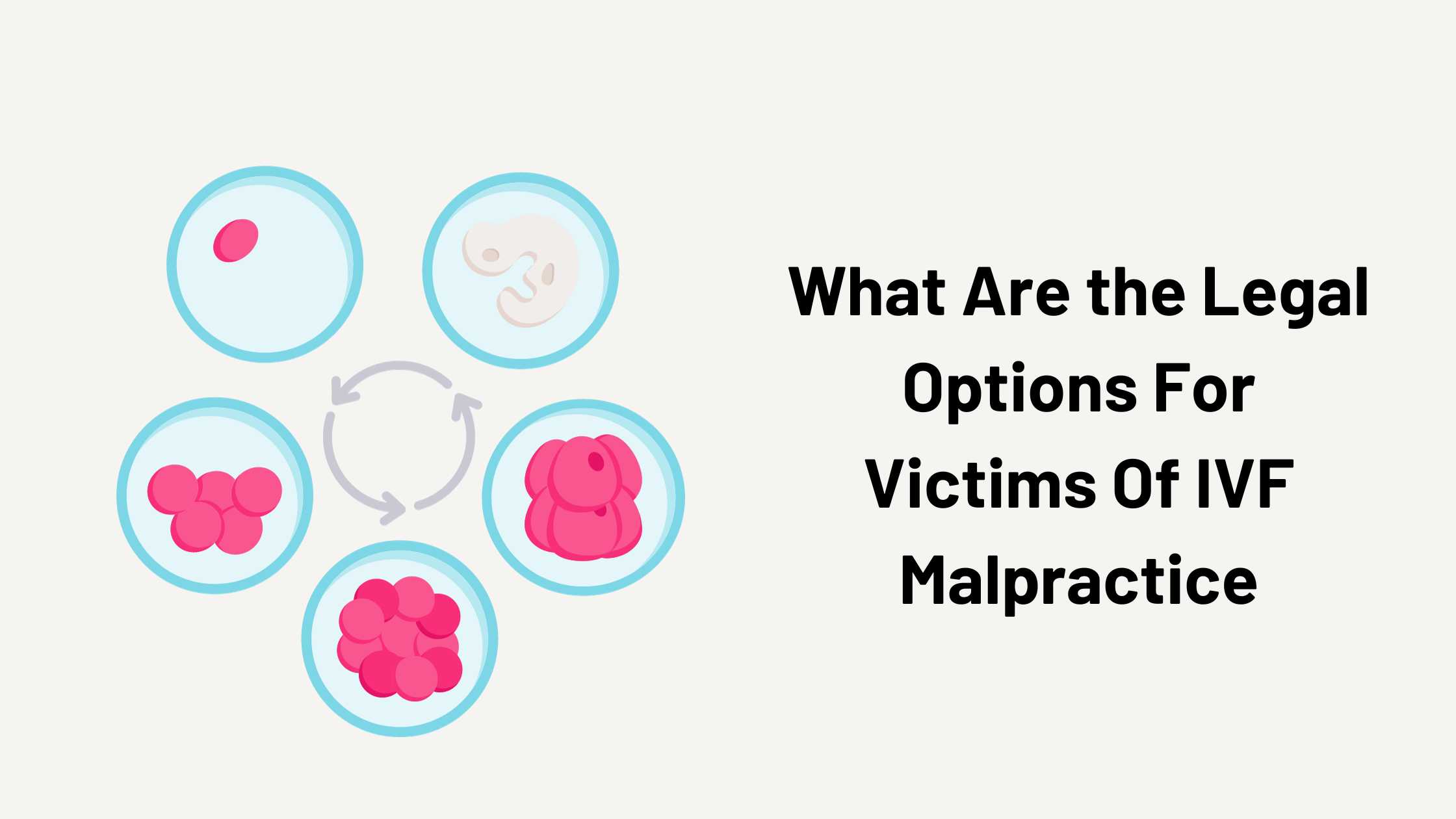
What Are the Legal Options For Victims Of IVF Malpractice
The journey to parenthood can be one of life’s most profound and hopeful experiences. While not many couples get blessed with kids right after their marriage, some husbands or wives experiencing health conditions find it hard to get pregnant even after years of trying. The good news is that with in vitro fertilization (IVF), couples with health problems could have a chance to have kids.
But, what happens when hopeful parents experience IVF malpractice? It’s a devastating and traumatic experience no parent should ever face.
If this unfortunate event turns into a lawsuit, San Bernardino Medical Malpractice Lawyers advise parents and partners to understand their legal options first.
In this comprehensive guide, we will look into the multifaceted world of IVF malpractice, providing insights into the various types of malpractice, discussing the complexities of establishing negligence, and offering guidance on seeking compensation.
Types of IVF Malpractice
You might be curious about the different ways IVF malpractice can occur during fertility treatment. It’s essential to be aware of these variations to determine if you’ve experienced any of the following:
- Genetic Screening Negligence: This occurs when potential donors or recipients are not properly screened, potentially passing on serious genetic disorders to the child.
- Embryo Mishandling or Mislabeling: Mishandling embryos or labeling errors can lead to implanting the wrong embryo or even the loss of embryos.
- Inadequate Informed Consent: Fertility clinics must provide patients with adequate information and secure their informed consent. Neglecting this responsibility is considered malpractice.
- Negligent Patient Monitoring: If a clinic fails to monitor a patient’s progress properly, it can lead to malpractice.
- Errors During Procedures: Mistakes during procedures like retrieval or transfer can also be categorized as malpractice.
If you believe you’ve experienced any of these types of malpractice, it’s crucial to consult with a legal professional to assess your options.
Establishing Negligence in IVF Cases
Establishing negligence in IVF cases can be a complex task, requiring careful examination of the medical records and expert testimony to determine whether the healthcare provider failed to meet the expected standard of care.
To establish negligence, you need to prove three key elements:
- Duty of Care: This means showing that the healthcare provider owed you a duty to provide proper medical care during your IVF treatment.
- Breach of Duty: You must demonstrate that the healthcare provider breached this duty, which typically involves errors, omissions, or other actions that deviate from the expected standard of care.
- Causation: You need to prove that the breach of duty caused you harm, which can include physical, emotional, and financial losses.
In IVF cases, the duty of care typically involves providing accurate information, proper screening, and appropriate treatment. Breach of this duty may include errors in the administration of medications, improper handling of embryos, or failure to diagnose and treat underlying medical conditions.
Expert testimony is crucial in proving negligence, as it helps to establish the standard of care and whether the healthcare provider deviated from it.
By gathering and presenting the necessary evidence, you can strengthen your case and seek justice for the harm you have suffered.
Seeking Compensation for Damages
To begin the journey toward justice and compensation, consult with an attorney specializing in IVF malpractice cases.
They will navigate the legal complexities, guiding you through the steps, including evidence collection, complaint filing, and court representation. Process the filing of lawsuits against the responsible parties, such as fertility clinics, doctors, or laboratory technicians, and help you gather the necessary evidence to prove negligence.
Compensation sought may include medical expenses, lost wages, pain and suffering, and emotional distress.
Legal action not only holds the responsible parties accountable but also promotes quality care in IVF, potentially preventing future malpractice.
Filing a Lawsuit for IVF Malpractice
Seeking justice and compensation for the damages caused by negligent IVF practices can be a crucial step in finding closure and rebuilding your life.
To initiate the legal process, you’ll need to consult with an experienced medical malpractice attorney who specializes in fertility law. They will assist you through the necessary steps, such as gathering evidence, filing the complaint, and representing you in court. It’s important to provide all relevant medical records and documentation to support your case.
While the legal process can be challenging and time-consuming, a successful lawsuit can result in compensation for your physical, emotional, financial losses, justice and closure.
Finding the Right Legal Representation
Finding the right attorney to guide you through the legal process can be like discovering the perfect compass that will help you surpass the challenging path towards justice and compensation.
Seek an attorney specializing in medical malpractice and IVF cases. Look for someone who understands the complexities of reproductive medicine and the specific laws governing IVF malpractice.
A skilled attorney will have a track record of successfully representing victims in similar cases and will be able to provide you with expert advice and guidance. They will help you gather evidence, navigate the legal system,negotiate with the responsible parties and secure the justice and compensation you deserve for the physical, emotional, and financial damages.
Conclusion
Understanding the diverse forms of IVF malpractice and how to establish negligence is a crucial first step in seeking compensation for the physical, emotional, and financial suffering you endured. Filing a lawsuit against the responsible parties is not just a legal right; it is a means to hold those accountable for their actions.
By enlisting the support of an experienced attorney specializing in IVF malpractice cases, you gain a dedicated guide who will fight relentlessly on your behalf, ensuring that justice is served.






